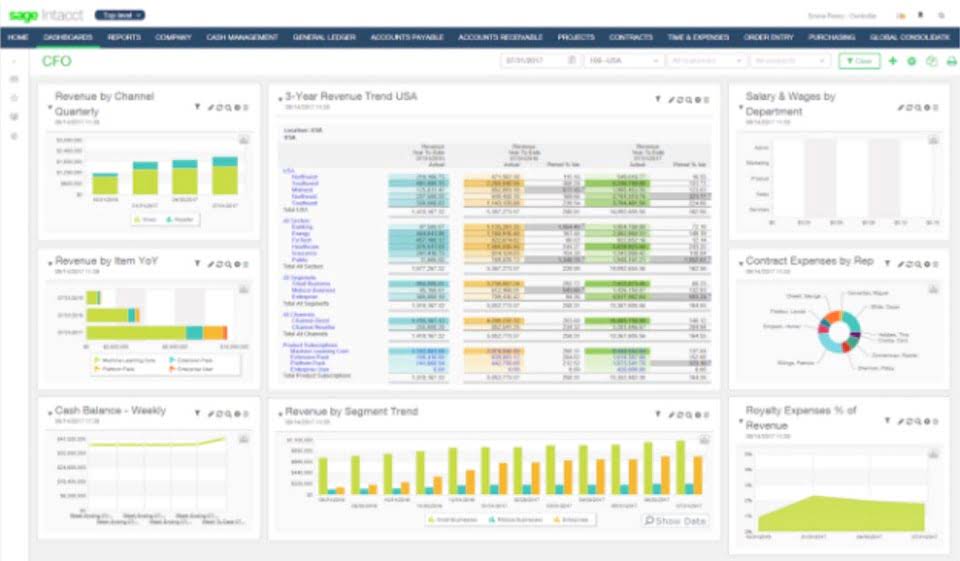Accounting Profit AP Microeconomics Vocab, Definition, Explanations Fiveable Fiveable
نوفمبر 3, 202013 Best Accounts Payable Software Solutions to Automate AP 2025
مارس 25, 2021
To fully reap the benefits, finance teams need to plan, adapt quickly, and strike the right balance between automation and human oversight. Supplier Matching and ValidationAI cross-checks invoices against supplier records, purchase orders, and contract terms, ensuring accuracy before payments are processed. Armed with AI, a manufacturing firm could automate supplier verification, reducing invoice mismatches and preventing disputes over incorrect charges. Cost Savings on Operational ExpensesBy reducing the need for manual processing, AI slashes overhead costs related to labor, document storage, and paper-based workflows. Companies that adopt AI-powered AP solutions report up to a 50% reduction in processing costs. Enhanced Compliance with RegulationsRegulatory requirements such as GDPR, PCI, and tax laws demand strict adherence to financial data handling.
Our platform

If it comes to an item where it’s unsure of the code, it will make a suggestion and flag the code for a member of the AP team to confirm. The software also learns from your historical patterns to determine if a line item needs a special GL code. By automating approval workflows, AI ensures that invoices are routed to the appropriate personnel without delays. This automation reduces bottlenecks and accelerates the payment cycle, improving relationships with suppliers. With faster approvals and better accuracy, finance teams can optimize payment cycles and take advantage of early payment discounts. Traditional AI automates specific tasks based on predefined rules, while Agentic AI possesses autonomy, allowing it to plan, decide, and act independently across various AP functions.
AP cards
- Spend AnalyticsAI provides deep insights into spending trends, helping finance teams optimize budgets, cut unnecessary costs, and improve financial planning.
- As AI and machine learning technologies continue to advance, their impact on the accounts payable landscape will only grow.
- Always emphasize that AI is not meant to replace anyone, but to enhance existing operations.
- So, how can AP teams move beyond fragmented efforts and make automation truly transformative?
- Inefficient communication and delayed responses to vendor queries are common challenges in accounts payable.
- AI automation can take over repetitive tasks, reduce human error, and find valuable insights from large amounts of data.
Matt has over 15 years navigating the finance automation software industry, delving into realms like AP, AR, Payments, and CCM. As a key member of our multi-functional executive team, he ensures Serrala AP, and data capture solutions provide our customers with positive outcomes and measurable operational improvements. However, like with any change, there are potential hurdles to overcome to ensure a successful implementation.
Key metrics to measure to optimise accounts payable efficiency
This transparency strengthens supplier relationships and contributes to a more resilient supply chain. Processing times drop from days to hours, especially when combined with touchless workflows. AI analyzes historical invoice data to recommend GL accounts, cost centers, and project codes. It can even account for nuances like seasonal variations or department-specific rules. According to Rillion’s 2025 AI in finance report, over 40% of surveyed finance leaders said implementing AI in accounts payable is a top priority for improving efficiency and competitiveness.

To add to that, there’s the opportunity cost of time being spent on invoice processing that could be used for higher-value work. AI in accounts payable is an umbrella term that refers to using intelligent and adaptive software to automate accounts payable workflows. By leveraging automated two-way matching and checking transactions against other data sources, both errors and risks of fraud are reduced.
- This results in smoother workflows, better cash flow management, and smarter financial decisions.
- You have the right to request that we delete Personal Data that we process about you, unless we need to retain such data in order to comply with a legal obligation or to establish, exercise or defend legal claims.
- Also, the potentially high costs and complexities involved in training and integrating AI systems may present barriers.
- The technology automatically identifies anomalies in invoice data and payment patterns, flagging suspicious activity for further review.
- To tackle these challenges, CFOs and finance leaders are resorting to automation and AI to supplement their teams and enhance productivity.
- Fortunately, a new wave of AI-driven solutions using LCNC tools is helping AP departments overcome the barriers to touchless invoice processing.
However, nearly half (48.9%) of AP departments already use automated invoice processing solutions. Among those, a quarter have net sales automated their end-to-end procure-to-pay (P2P) process. Reduced Manual ErrorsData entry mistakes can lead to costly errors, including duplicate payments or misclassified expenses. AI reduces the risk by capturing invoice details with 98%+ accuracy, ensuring financial data is reliable and reducing the need for manual corrections. ML is a tool for future-proofing, with the ability to continuously learn and adapt to new patterns.
- Our Goods & Services Tax course includes tutorial videos, guides and expert assistance to help you in mastering Goods and Services Tax.
- Regarding compliance, AI streamlines the entire process and eliminates the headache of noncompliance.
- If we are involved in a merger, acquisition or asset sale, your personal information may be transferred.
- Employee expense reports are another area where AI can make a significant impact.
- Traditionally, AP has been a time-consuming and labor-intensive task, riddled with challenges such as manual data entry errors, delayed approvals, and compliance risks.
Stay ahead and choose the right AP solution for your business

Work with all relevant stakeholders (such as the finance and IT teams) to create a timeline for a phased rollout. Implementing AI in your accounts payable process can have a real impact on your bottom line through these benefits. From a digital PDF or image of an invoice, the vendor information, invoice number, total amount, and individual line items are all captured by the system and matched with supporting documents.
Seamless integration with the top accounting platforms

This eliminates manual data entry errors and processes invoices in seconds rather than days. The system then dynamically routes invoices through smart approval workflows, adapting to organizational hierarchies and historical patterns to reduce approval cycles from weeks to hours. https://miss-phillips.com/unconsolidated-subsidiary-meaning-and-examples/ Artificial intelligence (AI) and machine learning in Accounts Payable are revolutionizing how businesses manage invoices, payments, and financial workflows. By leveraging AI for Accounts Payable, companies can automate repetitive tasks, reduce human errors, and gain real-time financial insights—transforming AP from a transactional burden into a strategic financial function.
Five Use Cases for Leveraging Generative AI in Accounts Payable

As a company evolves, so will Tiaplti Pi, continuously utilizing procurement and payables data to further automate workflows and streamline financial processes. This first phase is to assess business needs, determining the specific challenges and bottlenecks in your accounts AI in accounts payable payable process. This can include tasks like invoice validation, manual data entry, approval delays, etc. However, many have yet to realize how much artificial intelligence and machine learning can benefit processes.
